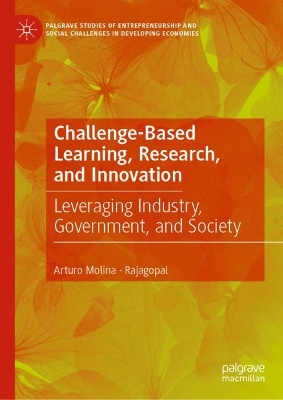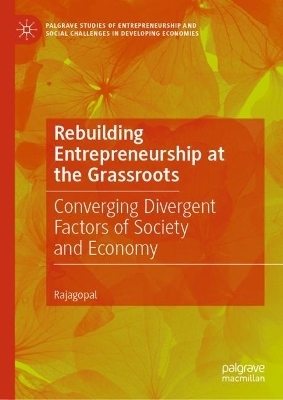Palgrave Studies of Entrepreneurship and Social Challenges in Developing Economies
2 total works
Challenge-Based Learning, Research, and Innovation
by Arturo Molina and Rajagopal
The work is divided into three sections: Part 1 discusses social challenges, triple bottom line, and entrepreneurship as drivers for research, learning, and innovation while Part 2 links challenge-based research to social and industrial development in emerging markets. The final section considers research-based innovation and the role of technology, with the final chapter bridging concepts and practices to shape the future of society and industry. The authors present the RISE paradigm, which integrates people (society), planet (sustainability),and profit (industry and business) as critical constructs for socio-economic and regional development.
Arguing that the converging of society and industry is essential for the business ecosystem to stay competitive in the marketplace, this book analyzes possible approaches to linking challenge-based research with social and industrial innovations in the context of sectoral challenges like food production, housing, energy, biotechnology, and sustainability. It will serve as a valuable resource to researchers interested in topics such as social challenges, innovation, technology, sustainability, and society-industry linkage.
This book analyzes the impact of entrepreneurship, technology, and innovation on meeting chronic and recurring social challenges, such as poverty, gender inequality, sustainability and climate change, income disparity, social healthcare, community housing and homelessness, and the drive to cleaner food and water supplies. It discusses inclusive entrepreneurial strategies to meet the above social challenges through transformational leadership in the developing economies.
With case studies from Southeast Asia, Africa, and Latin America, the chapters highlight the success and failure of entrepreneurship in resolving the social challenges, arguing that effective convergence of strategies related to technology, innovation, and poverty alleviation influences entrepreneurial performance.
Connecting different theoretical underpinnings and providing a number of frameworks, conceptual models, and cases, this work advances the conversation among entrepreneurship scholarson impacting the developing world.

